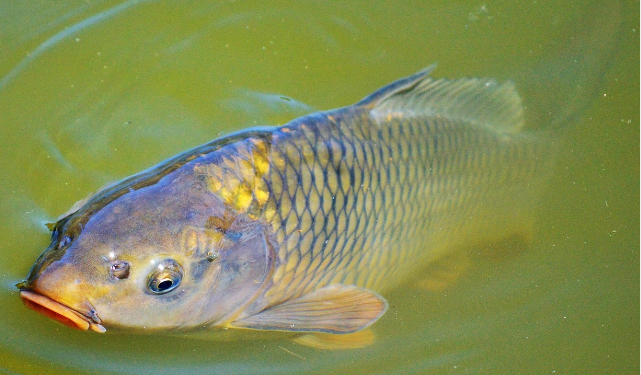Increasing carp fish productivity in Iraq: a challenge for small scale aquaculture, following the market – Carp is a popular fish in Iraq, characterized by high economic value, being part of traditional Iraqi national food and very popular in restaurants. It also contributes to strengthening the aquaculture sector also in small scale, providing jobs and increasing national income. Thanks to its natural presence in rivers and lakes, Cyprinus carpio contributes to maintaining the ecological balance and diversity of fish species in Iraq.
Fish wealth in Iraq has witnessed a significant decline in recent years.
Water scarcity, the resulting high salinity, the absence of a governmental plan and support, overfishing, and the use of primitive fishing methods have led to a significant decline in fish production to the point that it is threatened with disappearance.
For the above-mentioned reasons, fish productivity depends in particular on aquaculture, specifically for carp, the first popular and most consumed fish.
Carp is considered the main ingredient of the national dish of Iraq Masgouf, very popular in restaurants, especially in the capital Baghdad. It is marinated and grilled carp, with a unique taste.
Dr. Adel Abdel Wahed, who holds an honorary doctorate from Norway in carpculture, is an agricultural consultant with experience in fish farming and a supervisor of several projects in Iraq and the Arab Gulf countries, says that the rivers, lakes, marshes in Iraq are a favorable environment for many species of fish, among which is carp. This species of fish occurs naturally in the basins of the Tigris and Euphrates rivers, where it lives at the bottom of lake and rivers. Carp is characterized by its high rate growth body and due to its importance we are working on spawning it to increase productivity.
Dr. Abdul Wahid points out that the life of fish begins from the hatchery, and the carp fish is no exception.
Hatchery based fry production facts:
Carp broodstocks are kept in oxtgenetated water, within the temperature range of 20-24 ºC. To regulate the cycle of reproduction they are given two doses of pituitary gland injection, or a mixture of GnRH/dopamine antagonist, to induce ovulation and spermiation. The eggs are fertilized (applying the ‘dry method’) and the adhesiveness of the eggs is eliminated using saline solution bath. Incubation is carried out in incubation jars. The hatched fry are kept in large conical tanks for 1 to 3 days, and are usually stocked into properly prepared ponds. Approximately 300 000 to 800 000 newly hatched fry can be expected from a single female.
Shallow, aquatic weed-free drainable ponds of 0.5 to 1.0 ha are the most suitable for carp nursing. Nursery ponds must be prepared before stocking to encourage the development of a rotifer population, since this constitutes the first food of feeding fry. The stocking density is 100-400 fry/m. Supplementary feeds, such as artificial feed or rice bran or rice polishings can also be used for feeding fry. The length of the nursery period is 3 to 4 weeks. The final fish weight is 0.2-0.5 g. The survival rate is 40-70 percent.
Carp farming a good example for small scale aquaculture
The carp hatchery structure is simple and low capital investment and the protocol of reproduction is almost simple respect other farmed species – those characteristics allow farmers to develop small-scale production, making it a unique and rare model for aquaculture in general and a good way to attract youth, start-ups and small investors into the sector, which can also be easily integrated with agriculture.
Dr. Abdul Wahid stresses that carp is distinguished from other fish by the benefits and returns that it provides at various levels. From an ecological point of view and concerning the fish restocking, carp plays an important role in maintaining ecological balance and regulating the presence of other fish in the aquatic system. From an economic point of view, carp breeding is a profitable investment opportunity, since profits can be made by breeding it and marketing it to consumers
Many carp, including carp, are bred on fish farms, which provides jobs and contributes to the strengthening of the country’s self-sufficiency in food. The fish farming sector also provides opportunities for farmers and investors to achieve sustainable economic profits.
In addition, carp is part of the Iraqi cultural heritage and traditions, as it is considered a beloved and distinctive dish in traditional Iraqi cuisine.
Therefore Carp production represent a favorable scenario dictated by production in aquaculture, consumption tradition in Iraq and consequently the market: the most important component to ensure a sustainable development of this fish production. We can conclude that in places where the carp has a good market, it can be a simple application of aquaculture and a model of development as in Iraq.
Increasing carp fish productivity in Iraq: a challenge for small scale aquaculture, following the market








